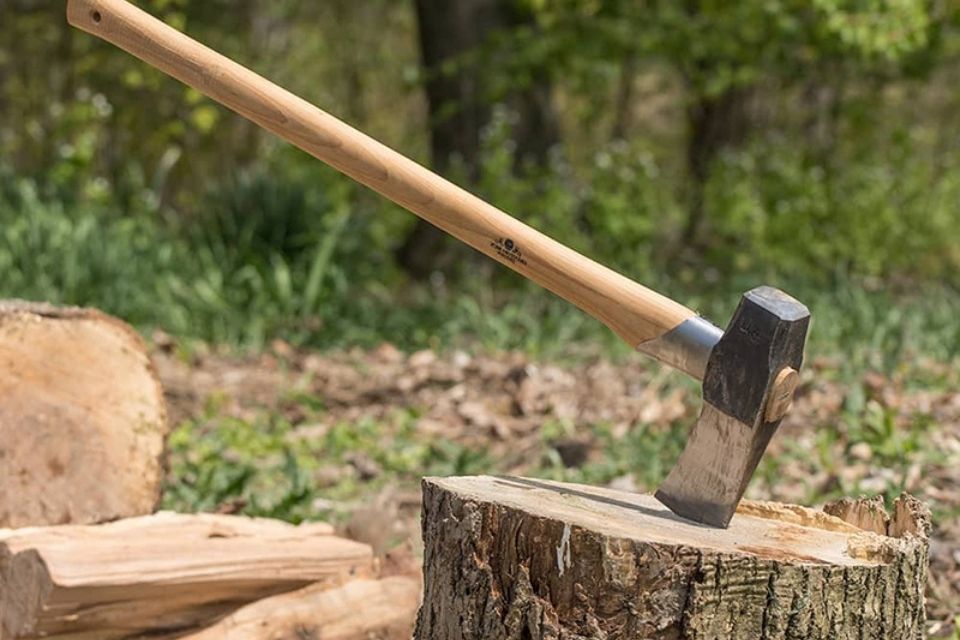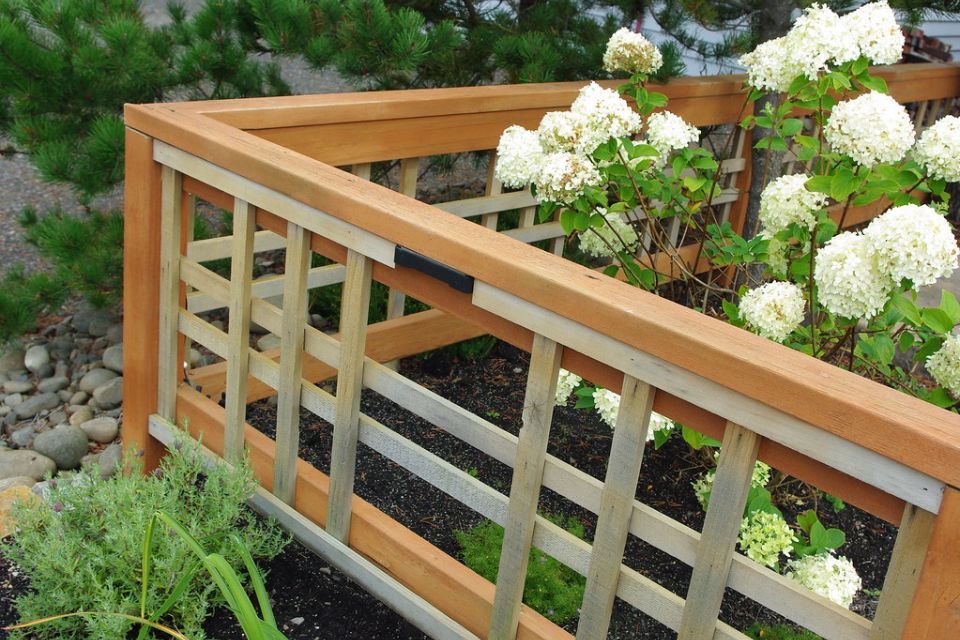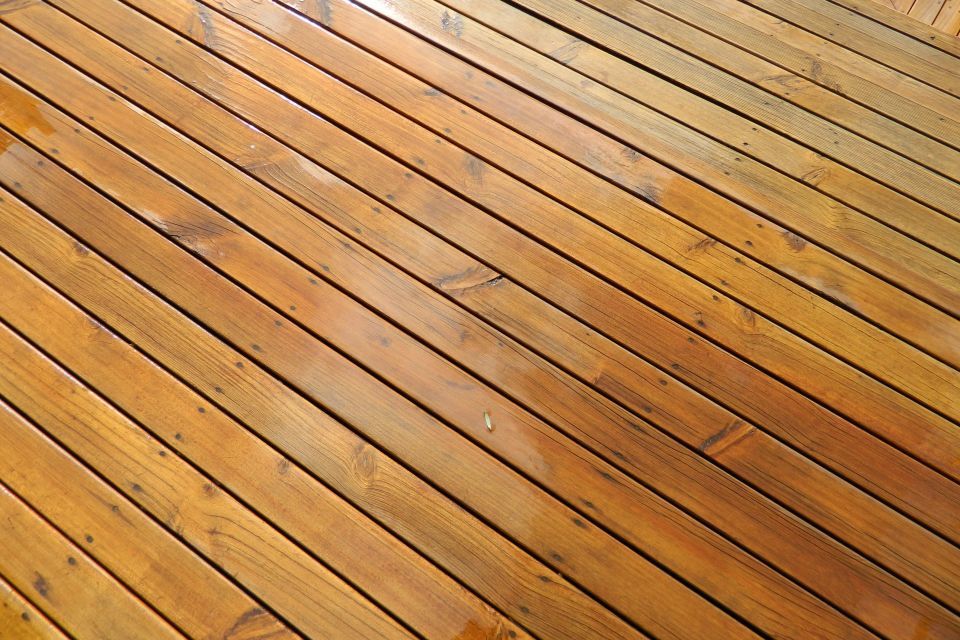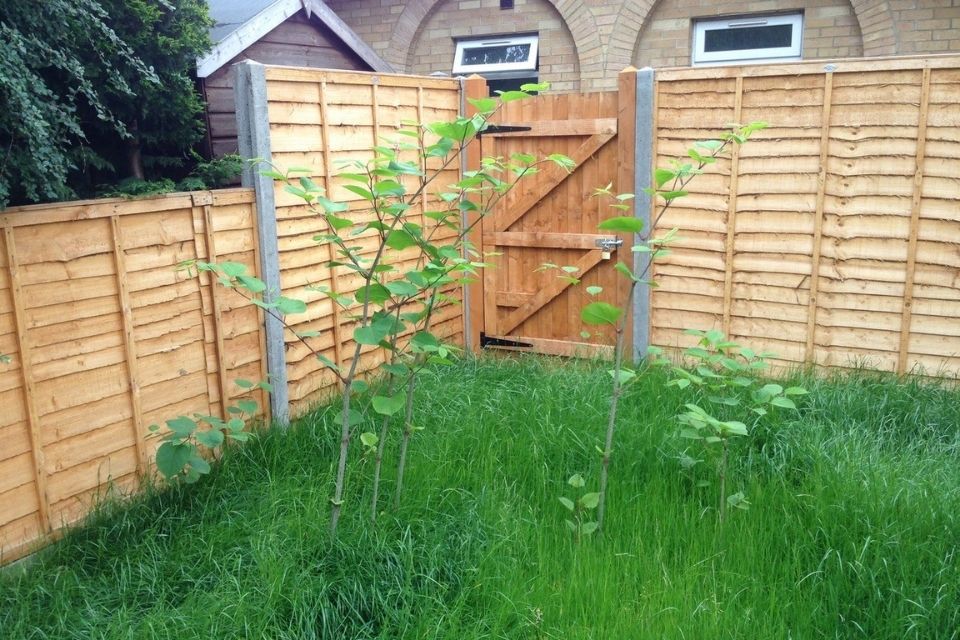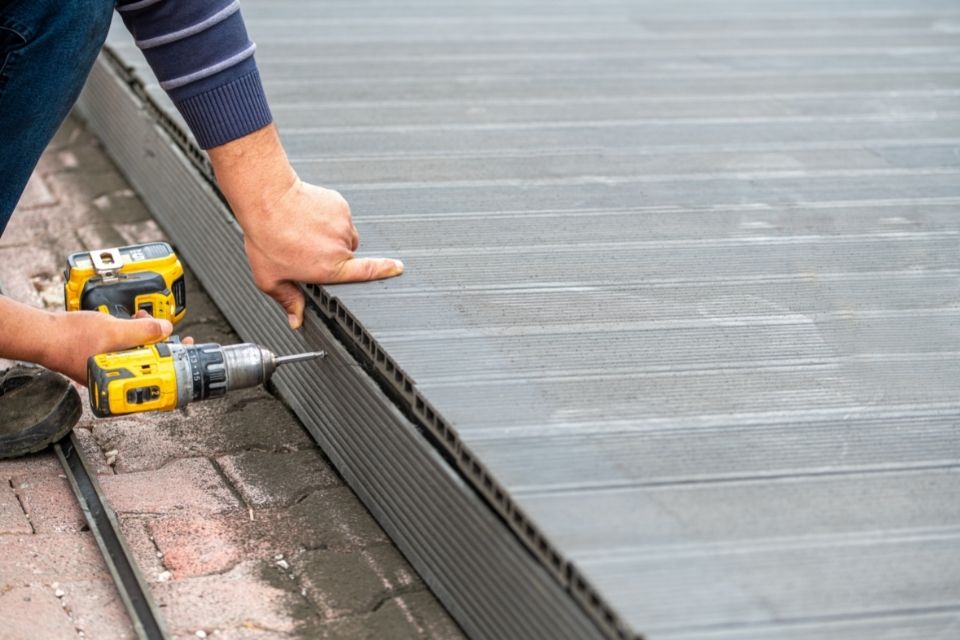How Much Is Tree Stump Removal?
To remove a single tree stump using a conventional removal method would cost about £160 to £190 if the stump covers an area of five inches or less or £230 to £320 if it covers more than five inches or there are several stumps to be removed.
Don't let tree stump removal fool you. It might not look like much hassle to deal with on the surface, but there's often much more happening underneath that you cannot see.
So what kind of methods may be used?
If a grinding method is used to displace the stump(s), expect to pay £60 to £80 for a stump covering five inches or less or between £185 and £225 if you’d like to have several stumps or/and a stump covering more than five inches of space grinded down. As you can see, the tree stump removal cost varies significantly.
Pruning costs depend on the type of tree, as different species have different growth patterns, wood hardness, and pruning needs.
- Plum tree or Lilac tree - £140 to £210
- Apple tree, Fig tree or Pear tree - £190 to £260
- Magnolia tree or Olive tree - £240 to £310
- Bay tree or Cherry tree - £340 to £410
For crown trimming, you’ll need to budget for about £330 to £870 for a small tree or around £730 to £1420 for a large tree.
Expect the cost of crown lifting to land about £280 to £370 for a small tree or £330 to £870 for a large tree.
What about removing dead wood?
The average cost of dead wooding is £330 to £870 for a small tree or £730 to £1420 for a large tree.
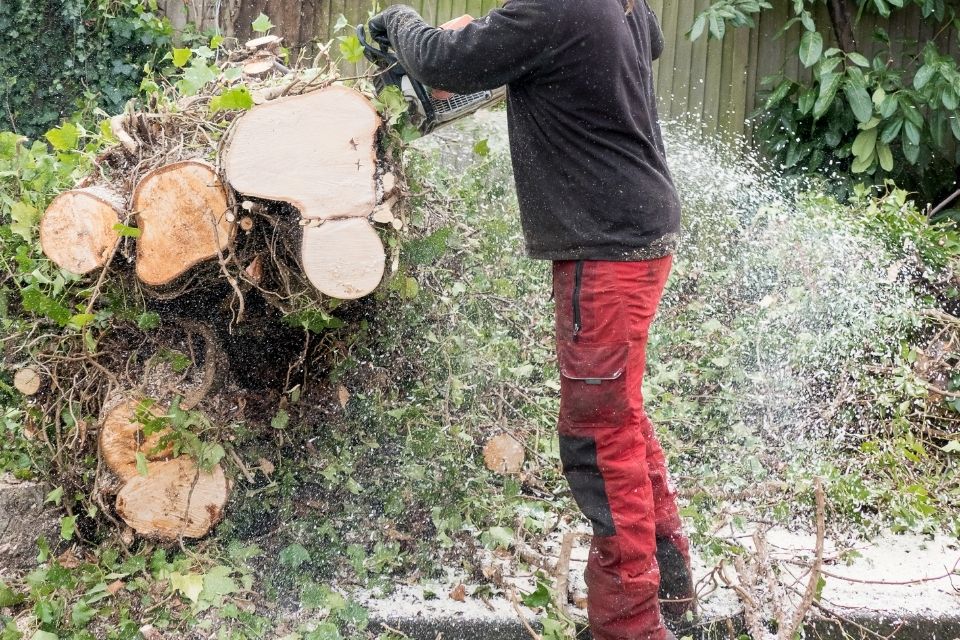
Crown reduction is a job with a much higher price tag. This type of work would feature a bill of approximately £2230 to £2870 if you have a small tree or £4030 to £5070 for a larger tree.
The size and type of tree are generally the main cost factors in determining the cost of tree maintenance. However, the type of maintenance is also very significant.
The cost will also be shaped by the number of gardeners or tree surgeons hired and ease of access.
Don't forget to consider your location...
Gardeners and tree surgeons charge different rates across the UK, as do contractors in general.
For instance, labourers charge more in the southeast of England (and London in particular) than the national average. In contrast, tradespeople in regions like the north of England, Northern Ireland, and Scotland tend to charge lower rates than the rest of the country.
Tree Stump Removal Prices
| Details of Job | Labour Costs |
|---|---|
| Removal of a single 5 inch stump | £100 to £110 |
| Removal of several stumps or one of 5+ inches | £140 to £190 |
| Grinding a single 5 inch stump | £30 to £40 |
| Grinding several stumps or one of 5+ inches | £140 to £190 |
Tree Trimming Prices
| Details of Job | Labour Costs |
|---|---|
| Crown trimming of a small tree | £300 to £800 |
| Crown trimming of a large tree | £700 to £1350 |
| Crown lifting of a small tree | £250 to £300 |
| Crown lifting of a large tree | £300 to £800 |
| Dead wooding of a small tree | £300 to £800 |
| Dead wooding of a large tree | £700 to £1350 |
| Crown reduction for a small tree | £600 to £1050 |
| Crown reduction for a large tree | £1625 to £2500 |
Tree Pruning Prices
| Type of Tree | Labour Costs |
|---|---|
| Prune | £110 to £140 |
| Lilac | £110 to £140 |
| Apple | £160 to £190 |
| Fig | £160 to £190 |
| Pear | £160 to £190 |
| Magnolia | £210 to £240 |
| Olive | £210 to £240 |
| Cherry | £310 to £340 |
| Bay | £310 to £340 |
- How Much Is Tree Stump Removal?
- What are the Supply Costs of Trimming, Pruning or Removing a Stump
- Additional Costs for Trimming, Pruning or Removing a Stump
- Tradesmen Costs for Trimming, Pruning or Removing a Stump
- How Long Does Tree Stump Removal or Pruning/Trimming Take?
- Types of Tree Maintenance
- Benefits of Tree Maintenance
- FAQs
- Sources
What are the Supply Costs of Trimming, Pruning or Removing a Stump
If you are considering a DIY approach, you will need to understand the costs involved for the tools required to complete the job.
With the use of a conventional approach, to remove a small tree stump, the supply costs will be minimal as you will only require basic tools such as:
- A shovel - to dig it out
- A pickaxe - to break up the stump
- A garden hose - to soften the soil around it
Expect supply costs to be around £30 to £65.
If a grinding method is chosen, a garden stump grinder is a costly piece of kit and would cost you about £1000 to £2000. This is why it makes far more sense to hire a professional, as although you would pay labour fees, this will still be far cheaper than buying the equipment yourself.
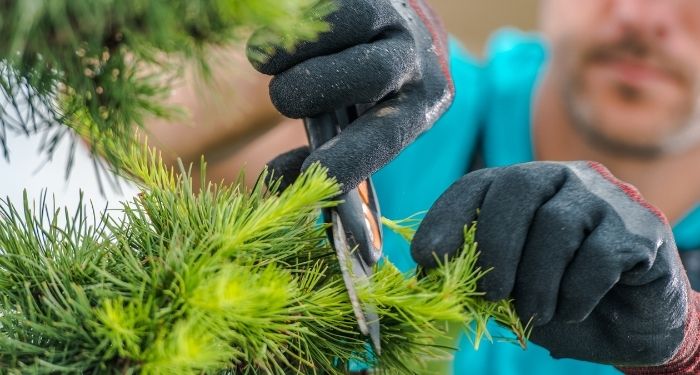
When it comes to pruning, pruning equipment could cost anywhere from £10 to £200 or more, depending on how advanced the equipment is. The costs for a professional will likely be limited to labour and waste removal expenses.
Crown reduction requires specialist equipment so hiring a professional is key. This type of job requires a lot of equipment, especially if the tree is large. This could include:
- Chainsaws
- Shears
- Ladders
- Climbing ropes & harnesses
- Safety Equipment inc helmet, gloves and glasses
Due to the complexity of this type of work, supply costs would land about £1600 to £1750 for a small tree or between £2375 and 2500 for a large tree in supply costs.
Other popular tree maintenance equipment includes tree loppers, which cost about £10 to £35 and a pole pruner, a piece of equipment that would set you back anywhere from £50 to £250.
Tree Maintenance Prices for Supplies
| Job Type | Supply Costs |
|---|---|
| Remove a small tree stump | £30 to £40 |
| Remove several stumps or one of 5+ inches | £45 to £65 |
| Crown reduction of a small tree | £1600 to £1750 |
| Crown reduction of a large tree | £2375 to £2500 |
Tree Maintenance Equipment Costs
| Type of Equipment | Supply Costs |
|---|---|
| Tree Pruner | £10 to £200 |
| Tree Loppers | £10 to £35 |
| Pole Pruner | £50 to £250 |
| Garden Stump Grinder | £1000 to £2000 |
Additional Costs for Trimming, Pruning or Removing a Stump
There is a range of factors that could affect the costs of your tree maintenance work. Let’s take a look at some common examples.
Minimum Fees
In many cases, gardeners or tree surgeons will set a minimum fee regardless of how short or long the work duration is. In other cases, a minimum fee (perhaps their hourly rate) will apply if the job is especially quick as a way to ensure that the work is worth their time, financially speaking.
Type of Tree
When it comes to pruning in particular, the type of tree is a significant cost factor. This is directly linked to the time it will take to complete the work, which in turn will determine the labour cost.
While having a Lilac tree pruned will likely cost less than £150, pruning a bay or cherry tree will probably set you back by more than £300.
The tree type is relevant for other jobs too, such as tree stump removal, since the stumps of some trees may be more difficult to remove than others. The longer it takes to remove the stump, the higher the labour cost may be.
Size of Tree
How large the tree is will also shape the costs, regardless of the job. The bigger the tree, the more time it will take to prune, trim or remove its stump.
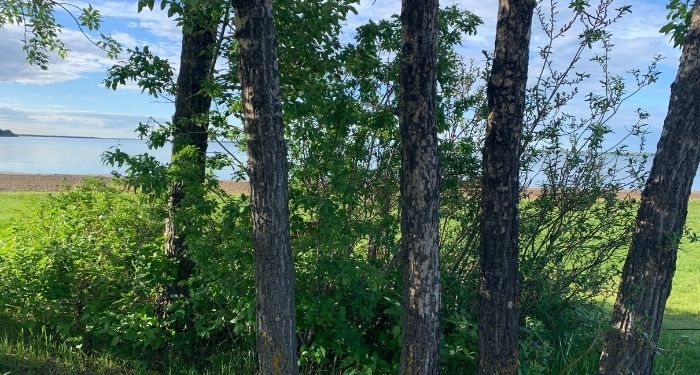
For example, crown lifting a small tree will likely take between three and five hours, but crown lifting a large tree will probably take a full working day. The difference in this case is roughly a factor of two, which would mean approximately doubling the labour cost.
Preparation
If your garden has poor accessibility, such as due to overgrowth or if there are other issues with your tree (e.g. a pest infestation or it is diseased), then specific preparations may be required before it can be trimmed, pruned, or have its stump removed. This would add to the labour cost and probably supply costs too.
Number of Tradespeople
Though many tree maintenance jobs can be performed by a single labourer, some companies/contractors may offer services whereby a team of two or three will take on a job. This may be for practical reasons or/to save time. As some examples, pruning a tree is usually a one-person job, but dead wooding and crown trimming often require two labourers.
By saving time, it will bring down your labour expenses in that regard, but the hourly labour cost would double or triple. Whether this would prove to be an added cost overall will depend on factors such as how well the gardeners or tree surgeons work together.
Duration
Of course, regardless of the reasons, the timeframe of the tree maintenance job will significantly shape the labour cost in particular. Some jobs like dead wooding a small tree will last just a few hours but reducing the crown of a large tree usually takes between two and three days.
Tradesmen Costs for Trimming, Pruning or Removing a Stump
In most cases, the labour expense will make up the bulk of your bill when having tree maintenance work undertaken. This is whether it is done by a contractor or a tree trimming service.
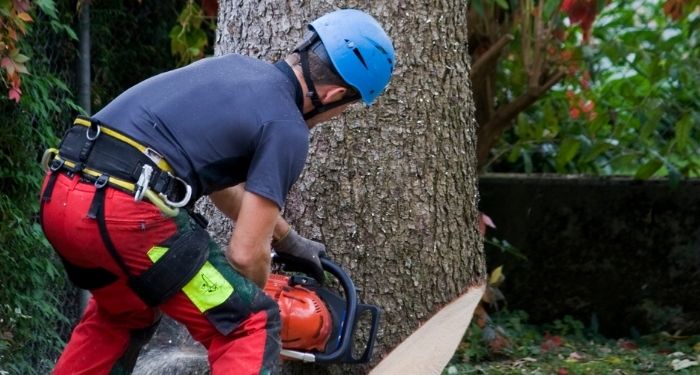
Tree surgeons charge about £40 an hour per person. As some tree maintenance work will require more than one person, the total cost per hour can double or triple depending on how many people you are hiring.
How Long Does Tree Stump Removal or Pruning/Trimming Take?
The time it takes for a gardener/tree surgeon to perform a task will depend on a range of different factors.
To have a tree stump removed will likely take between 30 minutes and two hours for a small tree or two to four hours in the case of a large tree. Tree pruning generally takes two to eight hours, depending on the size and type of tree.
It may take half a day or less to have a fig or plum tree pruned, for instance, but up to a working day and possibly more if a cherry or bay tree is being pruned.
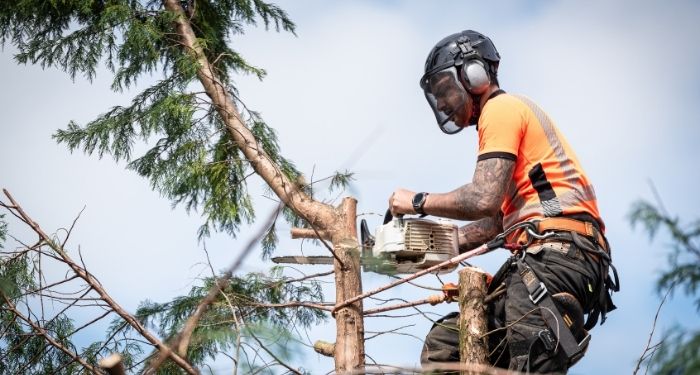
Deadwooding a small tree generally takes half a day. One day jobs include crown lifting a small tree, crown trimming a small tree, reducing the crown of a small tree, and deadwooding a large tree.
It will probably take two days to crown lift a large tree, and about 2-3 days if you’d like to have the crown of a large tree trimmed or reduced.
Other time factors worth considering are the number of tradespeople involved, the weather, and ease of access.
Types of Tree Maintenance
We’ll now look closer at the various forms of tree maintenance, namely, stump removal, pruning, and trimming.
Tree Stump Removal Cost
As the name suggests, this is the process of removing a tree stump from a garden. Often, the attached roots are removed too. There are plenty of methods that can be used to remove a tree stump, including grinding, burning, and with the use of chemicals.
Many homeowners choose to have tree stumps removed for a wide range of reasons, such as because the stump is ruining the aesthetic of the garden, it is making garden maintenance more challenging or simply as part of a bigger gardening design project.
Tree stumps can also catch different diseases over time if left unchecked. Tree stump removal may cost anywhere from £60 to £320 depending on the extent of the job and the method used.
Pros
- Reduces risk of a tree stump spreading disease
- Tree stumps can be unsightly
- Tree stumps may get in the way of future construction
- Can be inexpensive, particularly if grinding is used
Cons
- May prove time consuming depending on the particular tree stump
- Less suitable as a DIY job than most garden maintenance
Tree Pruning Cost
One of the most common types of tree maintenance is tree pruning. It is the practice of removing certain parts of a tree, including its buds, roots, and branches, but in a selective manner. For instance, the person pruning will be able to identify and cut off tree parts that are damaged, diseased, dead, unstable or even just unsightly.
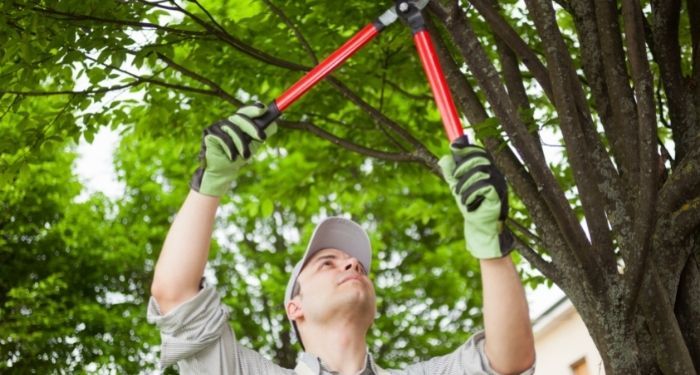
Deciduous trees should be pruned in autumn or winter, while it is best to prune evergreen trees in mid to late summer. It’s important to note that certain issues can arise from pruning, such as silver leaf, coral spot and bleeding. Pruning costs vary significantly depending on the type of tree. It may cost as little as £140 to as much as £410.
Pros
- Can improve structural integrity
- Reduces the risk of falling branches
- Can positively influence how a tree grows
- Tree pruning cost not often too high
- Removes damaged and diseased tree parts
Cons
- Risks of bleeding from prune cuts
- Can cause silver leaf
- May lead to coral spot
Tree Trimming Cost
This is the act of cutting branches, stems and buds off a tree. In most cases, small secateurs can be used to trim a tree. However, if the branches are thick enough, then a saw will be required, and in rare cases, if the tree is large enough, a chainsaw will be needed.
Trimming a tree can improve its health and appearance, reduce the risk of it causing damage to your property, and make visible any disease or other issues that may otherwise be concealed.
If a tree has weak branches, dangerous branch growth, excessive growth, bark cracks, dead or diseased limbs, or it has become misshapen, these are all signs that it is a good time to have your tree trimmed.
Among the different types of tree trimming are crown trimming, dead wooding, and crown lifting. The tree trimming cost could be anywhere from £330 to £5070 depending on the type(s) of trimming, size and type of tree, and the extent of the work required. Most forms of tree trimming will cost several hundred pounds, however.
Pros
- Enhances tree health
- Improves appearance
- Reduces the chances of property damage
- Can make it easier to spot disease
- Can make a range of other issues more visible
Cons
- The cost of trimming a tree can be substantial
- May not always be suitable for a DIY job
Benefits of Tree Maintenance
Regardless of the type(s) of tree maintenance you choose, there are a range of benefits worth considering. Let’s break down some of the clearest advantages of tree maintenance.
Enhances Tree Health
One of the biggest benefits of maintaining a tree is that it can make it healthier and increase the odds of it having a long lifespan. Pruning and trimming can remove disease, infested tree parts, or elements that are damaged or unstable.
There are many other ways in which a tree’s health can benefit from maintenance, such as by cutting away oversized branches, and therefore allowing more nutrients to reach the rest of the tree.
Improved Sunlight Exposure
If your tree is overgrown, many leaves can be obscured from sunlight, and this will mean that photosynthesis will not be evenly spread throughout the tree. By maintaining a tree, more of it can be left exposed to the sun, and this will make for a healthier, sturdier, and more vibrant tree.
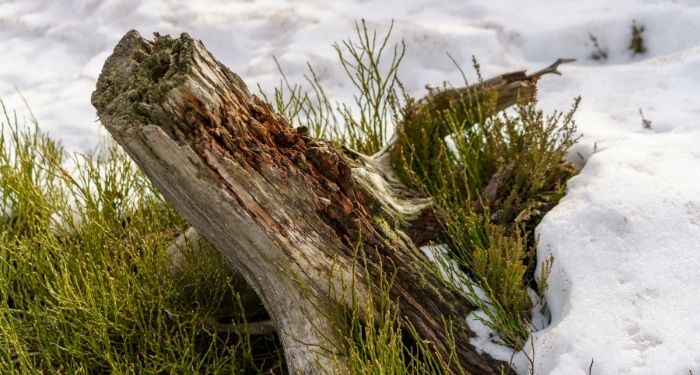
Better Appearance
If your tree is not looked after properly, it can appear overgrown and messy. In addition, branches can become damaged, and the tree itself may lose shape. By pruning and trimming a tree, it will help to achieve the opposite and not only improve its appearance in the present but also prevent the tree from becoming unsightly over time.
Reduced Risk of Damage
A tree that is well-maintained is less likely to cause damage to your property. This might happen if tree parts fall straight to the ground or even if tree elements are blown toward your home during adverse weather. Pruning and trimming can rid a tree of unstable and damaged parts and make the tree more stable all around.
FAQs
Q: How do you prune an apple tree?
A: Apple tree pruning involves first evaluating your tree to see what needs to be pruned (e.g. dead branches, crowded areas, and oversized branches). Next, remove dead, damaged, and diseased branches. To improve the overall shape of the tree, remove out-of-place and oversized branches.
Remove more branches to allow sunlight to reach more of the tree effectively (i.e. reduce overcrowding and concealed tree parts). Lastly, prune off the head growth of tree branches down to just over a lateral bud. You want to give your tree a haircut, but make sure not to overdo it either.
Q: Can you kill a tree stump?
A: Yes, Epsom salts can be used to kill tree stumps. If you buy an Epsom salt product, ensure that you follow the instructions of the manufacturer and follow any safety guidance correctly.
Q: What is the cost of removing a tree?
A: For an average tree, the removal cost will likely be between £250 and £750 but the cost could range from as little as £150 to as much as £2500 depending on the size of the tree.
Q: Can I remove a tree stump DIY?
A: Yes, but it could be proven very difficult, unless you have the right skills and knowledge. In most cases, it’s best to hire a professional.
Q: When should I prune a cherry tree?
A: Early to midsummer, since it is a deciduous tree.

